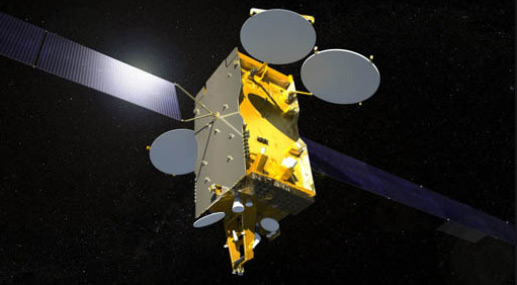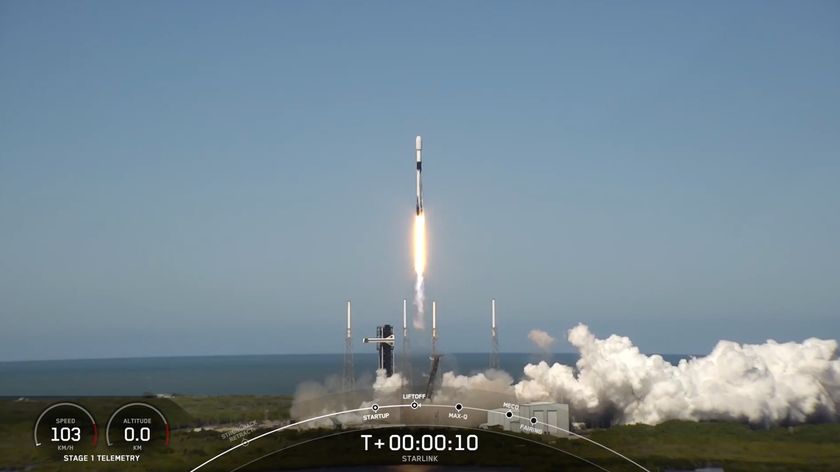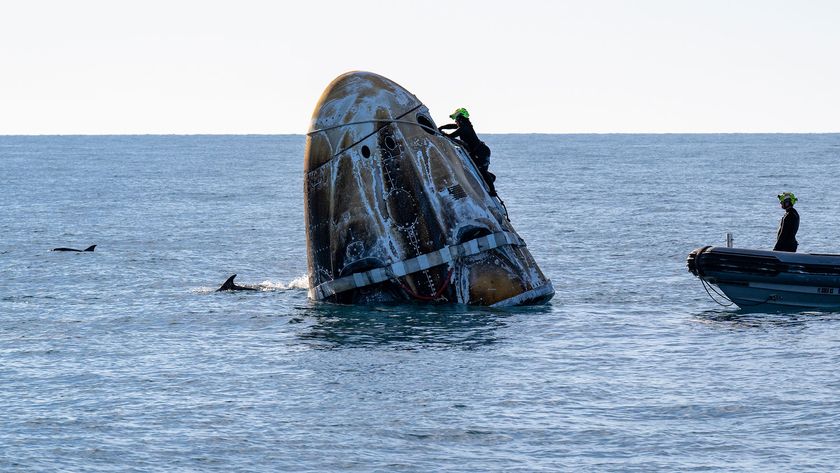Dead Russian Satellite to Fall From Space on Purpose Next Week

WASHINGTON — The Russian government will guide the large Express–AM4 telecommunications satellite, which was launched into a useless orbit in August, into a controlled atmospheric descent starting March 20 so that any surviving pieces will land in the Pacific Ocean, a senior official from Russia’s state-owned satellite telecommunications operator said March 15.
The 5,800-kilogram satellite has been stuck in a too-low orbit following the failure of the Breeze M upper stage of the Russian Proton rocket.
Dennis Pivnyuk, chief financial officer of the Russian Satellite Communications Co. (RSCC), which had planned to operate Express-AM4 for 15 years as part of its expansive development plan, said Russian authorities had considered and rejected multiple salvage scenarios for the satellite.
“We have decided to splash it between March 20 and March 26,” Pivnyuk said here during the Satellite 2012 conference. “While the satellite was not damaged, it has spent seven months in an orbit that exposes it to radiation that has left it in not good shape. There is not much lifetime left. We’ve reviewed different proposals from different entities, but none was really feasible.”
Express-AM4 was built by Astrium Satellites. Using its insurance payout from the loss of about $270 million, Moscow-based RSCC has ordered a replacement satellite, the Express-AM4R, which Astrium has promised to deliver in time for a launch in late 2013. Express-AM4 carried 63 active transponders in C-, Ku-, L- and Ka-bands.
Among the proposals submitted to Russian authorities for salvaging Express-AM4 was a bid by Polar Broadband Systems Ltd.
Former NASA human spaceflight chief William Readdy co-founded the Isle of Man-based company last year with the aim of repositioning Express-AM4 to provide researchers in Antarctica with 14-16 hours a day of broadband communications.
Get the Space.com Newsletter
Breaking space news, the latest updates on rocket launches, skywatching events and more!
Readdy told Space News March 15 the company had not given up on persuading Russian authorities to reposition the satellite through a series of orbit-raising burns between the end of March and the beginning of June.
Polar Broadband Systems aims to sell Express-AM4 services to the U.S. National Science Foundation, which issued a request for information in April 2011 seeking industry recommendations for obtaining satellite-based broadband communications services for the Amundsen-Scott South Pole Station, which is largely beyond the reach of Antarctica’s extremely limited satellite coverage.
Space News Deputy Editor Brian Berger contributed to this story.
This story was provided by Space News, dedicated to covering all aspects of the space industry.
Join our Space Forums to keep talking space on the latest missions, night sky and more! And if you have a news tip, correction or comment, let us know at: community@space.com.

Charles Q. Choi is a contributing writer for Space.com and Live Science. He covers all things human origins and astronomy as well as physics, animals and general science topics. Charles has a Master of Arts degree from the University of Missouri-Columbia, School of Journalism and a Bachelor of Arts degree from the University of South Florida. Charles has visited every continent on Earth, drinking rancid yak butter tea in Lhasa, snorkeling with sea lions in the Galapagos and even climbing an iceberg in Antarctica. Visit him at http://www.sciwriter.us













